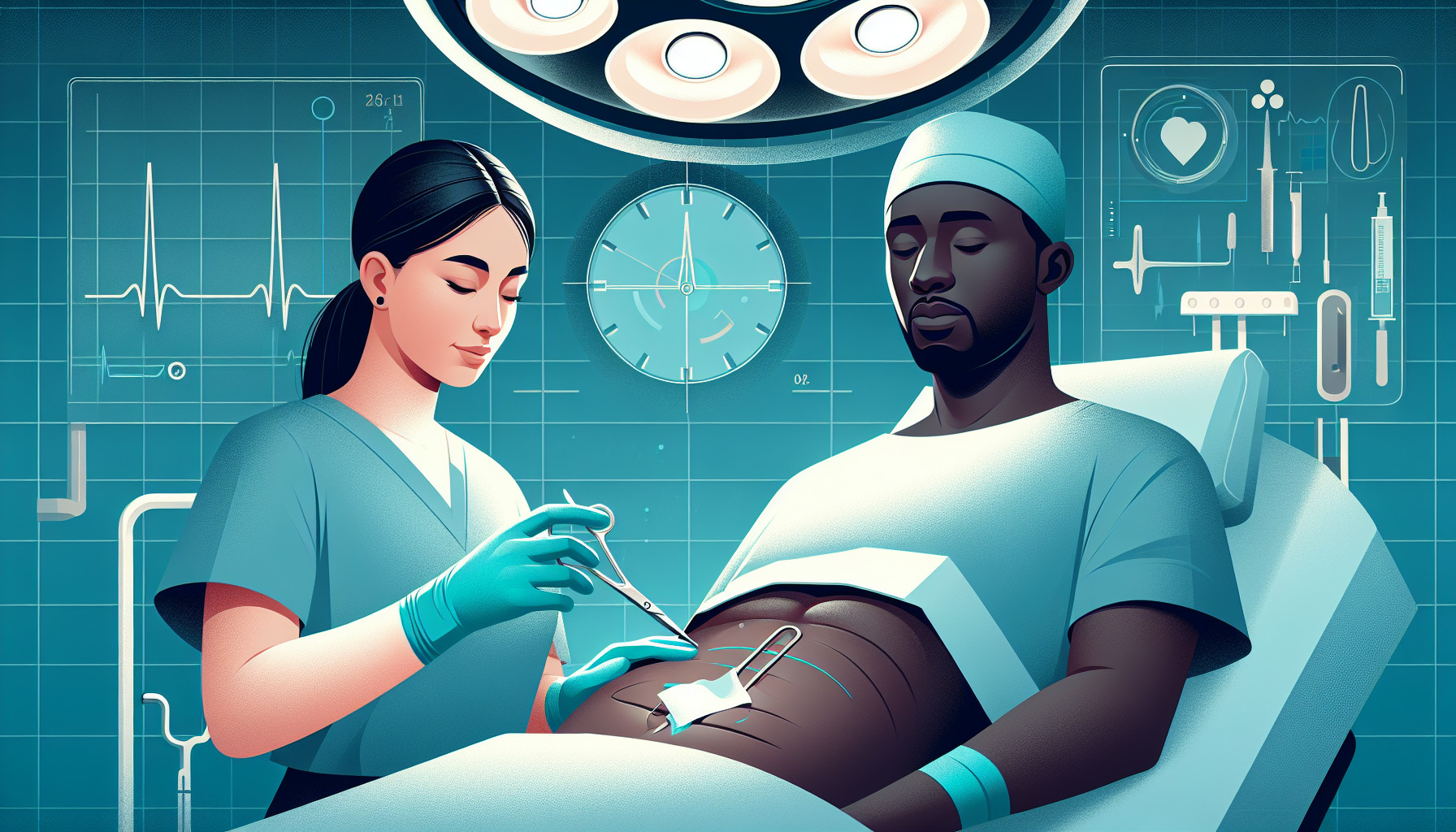Our Summary
This paper examines whether elective surgery or non-surgical treatment is better for patients with diverticulitis, a digestive disease. The study analysed findings from multiple trials and studies involving over 3,600 patients. The results showed that patients who opted for surgery reported higher quality of life scores and fewer instances of the disease returning. However, the difference in quality of life scores between those who had surgery and those who didn’t wasn’t large. Furthermore, the benefits of surgery should be weighed against the potential risks and complications of the procedure.
FAQs
- Does elective surgery for diverticulitis result in a higher quality of life compared to non-surgical treatment?
- How significant is the difference in quality of life scores between patients who opted for surgery and those who didn’t?
- What are the potential risks and complications associated with surgery for diverticulitis?
Doctor’s Tip
A helpful tip a doctor might tell a patient about diverticulitis surgery is to thoroughly discuss the risks and benefits of the procedure with their healthcare provider. They should also make sure to follow their doctor’s recommendations for post-operative care to ensure a successful recovery.
Suitable For
Patients who are typically recommended diverticulitis surgery are those who have recurrent or severe episodes of diverticulitis that do not respond to non-surgical treatments such as antibiotics or dietary changes. Surgery may also be recommended for patients with complications of diverticulitis such as abscesses, fistulas, or bowel obstructions. Additionally, surgery may be considered for patients who have a high risk of developing complications or have a history of severe complications from diverticulitis. Ultimately, the decision to undergo surgery should be made on a case-by-case basis in consultation with a healthcare provider.
Timeline
Before Diverticulitis Surgery:
- Patient experiences symptoms such as abdominal pain, bloating, changes in bowel habits, and fever.
- Patient may undergo diagnostic tests such as a CT scan or colonoscopy to confirm the diagnosis of diverticulitis.
- Patient may be prescribed antibiotics and placed on a liquid or low-fiber diet to help manage symptoms and reduce inflammation.
- If symptoms do not improve with conservative treatment, surgery may be recommended as a last resort.
After Diverticulitis Surgery:
- Patient undergoes surgery to remove the affected portion of the colon or to create a colostomy, depending on the severity of the disease.
- Patient may experience pain, bloating, and fatigue in the immediate post-operative period.
- Patient is closely monitored for any signs of infection, bleeding, or other complications.
- Patient gradually resumes eating a normal diet and begins to regain strength and energy.
- Patient may require physical therapy or counseling to help with recovery and adjustment to any changes in bowel function.
- Patient undergoes follow-up appointments and monitoring to ensure proper healing and to prevent future episodes of diverticulitis.
What to Ask Your Doctor
- What are the potential risks and complications of diverticulitis surgery?
- How long is the recovery time after diverticulitis surgery?
- Will I need to make any lifestyle changes after surgery?
- What are the chances of the diverticulitis recurring after surgery?
- Are there any alternative treatment options to surgery?
- How will surgery impact my quality of life in the long term?
- What is the success rate of diverticulitis surgery?
- Are there any specific dietary restrictions I should follow after surgery?
- How experienced is the surgical team in performing diverticulitis surgery?
- What is the expected outcome of surgery in terms of symptom relief and overall health improvement?
Reference
Authors: Kahana N, Horesh N, Emile SH, Boaz E, Gefen R, Garoufalia Z, Rogers P, Rosenthal RJ, Wexner SD. Journal: Surgery. 2025 May;181:109143. doi: 10.1016/j.surg.2024.109143. Epub 2025 Jan 30. PMID: 39889515
